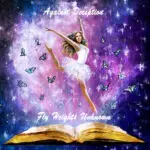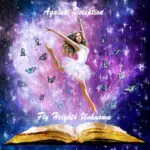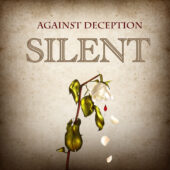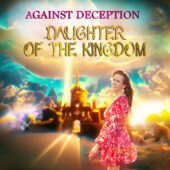5 Surprising Stats About Christian Music Artists
Surprising Stats About Christian Music Artists
There are a lot of astonishments in this article relating to Christian music. These aren’t necessarily negative, but a lot of Christian music has been influenced by secular styles and is sold by mainstream brands. Here are some Surprising Stats About Christian Music Artists. Sadly, most artists today haven’t succeeded in penetrating the mainstream, and this is unfortunate. There are several shocking stats about Christian music artists, and I’ll highlight a few below.
Christian music is influenced by secular styles
While the history of Christian music is varied, secular styles have played a significant role in its development. For instance, Renaissance composers influenced classical music and the Baroque style. By the end of the 19th century, music influenced by Christian values was often more secular than that of non-religious people. For example, medieval secular music was influenced by Christian values, such as the worship of God. While secular music may not necessarily be religious, it is usually free from religious themes.
Besides, listening to secular music can affect your behavior and feelings. It can influence how you react when you are angry or frustrated. It can also affect your worldview and beliefs. As a follower of Christ, you should seek to worship, glorify, and experience a relationship with Him. Christian music can enhance your faith and improve your attitude and can help you reflect on Christ better. However, you must be careful when listening to secular music.
Some scholars argue that there is a rigid line between sacred and secular music, but others argue that the boundaries are more fluid. For instance, some pieces can be categorized only by their lyrics, while others may have a secular melody and are merely influenced by evangelistic sentiment. The level of fluidity between the two styles varies and can depend on the denominational context in which they are performed. The tension between the two styles is influenced by many factors, including personal preference, socio-cultural experience, and even denominational dogma.
Although Christian music was largely influenced by secular music styles, its composition often incorporates elements of these genres. For example, gospel music is often based on blues, which is very familiar to the general population. Gospel music can also contain elements of R&B and blues. The first three verses of the song “Yesterday” focus on the protagonist’s last tears, and the text explicitly names God as the object of that trust.
It is sold in its musical style
The Christian music industry generally follows the same trends in mainstream music as other industries. Artists tend to pair secular styles with lyrics that display spirituality or faith. Although Christian music has been influenced by mainstream culture, its lyrical content is typically labeled differently than other genres. Despite this, the Christian music industry enjoys significant success outside of its ghetto. Here are some of the reasons for this.
The genre is typically divided into two types: born again and contemporary. The born-again style consists of music influenced by Protestant and Evangelical Christianity. In the late 1960s and early 1970s, the Jesus movement impacted the musical style of the Christian genre. These musicians, often referred to as “Jesus Freaks,” were heavily influenced by the counterculture movement, and began expressing themselves in worship and alternative popular music.
In addition to being religious, gospel music has evolved into a popular, commercial, and influential genre. It was the sixth-best-selling genre in the USA and sixth in the world at the turn of the millennium. This article explores the evolution of Christian music as a genre and how it reflects the social change. It also examines the role of the gospel genre in American pop culture. So, what is it about the gospel genre that makes it so successful?
Gospel style music emerged from the two earlier genres of Christian music. During the early twentieth century, gospel songs tended to be serious in tone. However, by the 1910s and 1920s, church-centric Gospel music had begun crossing into the mainstream. The mixed-gender Gospel chorus “The Edwin Hawkins Singers” released a song based on a mid-eighteenth-century English hymn. The song sold millions of copies in two months and earned the group the first of four Grammy Awards for its genre.
It is marketed by mainstream brands
The music industry in general follows trends that exist in the secular scene. Although Christian artists generally use secular styles, they often pair them with lyrics expressing their spirituality or faith. It is important to remember that Christian music is still a subculture, and its artists face the same challenges in crossing over to the general public as mainstream brands. Therefore, it is important to be aware of trends in the secular music scene to understand the changing landscape of Christian music.
Contemporary Christian music is increasingly used in films and television shows that cater to a Christian audience. In 2014, Coca-Cola and McDonald’s used Christian music to promote their products. The Gospel Music Association asserts that Christian music has an audience that spans genres. The first platinum-selling album in the industry, Age to Age, sold over 17 million copies. Meanwhile, the most popular film in the genre, God’s Not Dead II, topped the Billboard charts, earning more than $80 million.
In the 90s, Christian music sales eclipsed sales of jazz and classical music. With the growing popularity of Christian music, record companies needed to sign more bands to keep the machinery of the industry running and feed Christian radio stations in the USA with new material. As a result, record companies became less selective in who they backed, and several bands with little character ended up being snapped up by mainstream brands.
Similarly, record labels were no longer owned by Christians, but by public markets and equity funds. As a result, the new measure of success for these brands was earnings per share and market share points. Even a single percentage point difference could make or break a record label. Despite the challenges faced by Christian artists, the industry continues to thrive as it tries to adapt to a new environment. The music industry in the UK has made significant progress in attracting mainstream audiences and promoting the gospel in the commercial sector.
Though Christian music is not yet in a position to effectively market itself, it is in a much better position than it was just a decade ago. The major record labels have clout and have been silent partners for Christian label Myrrh. The lack of innovation and diversity has led to increased opportunities for new talent to break into the Christian music industry. Many musicians of faith debate whether they should align themselves with the mainstream music industry or try to find their niche.
It is sold by its lyrical content
The lyrics of Christian music are often what sell it. While it’s true that Christian artists generally use secular musical styles, their lyrics often display their faith and spirituality. Since Christian artists generally follow the same trends as the secular scene, the majority of the music they create falls into this category. The lyrical content is not, however, the only factor that determines the popularity of Christian music. The lyrical content is one of the most important elements to consider in determining whether Christian music is popular or not.
One of the most popular examples of Christian punk is Demon Hunter, a Christian Metalcore band with several tracks on the Killing Floor 2 soundtrack. In this song, Demon Hunter references God as “one name above all names” and claims to be “inspired by the Holy Spirit.” Another example is Colton Dixon, a former American Idol contestant who currently tours with Christian rock band Third Day. Critics have accused Dixon of not being religious enough in his lyrics.
Historically, Christian rock has had a bad reputation. Many Christian rock bands are perceived as “watered-down imitations” of secular genres and are criticized for shoehorning Christianity into their lyrics to get on gospel stations. But the truth is that Christian rock bands vary in production quality and talent. In most cases, Christian rock acts are no more derivative than mainstream radio groups. The genre isn’t as edgy as people might think, and Christian rock bands often choose to express their faith instead of their morals.
Among the lyrical content of Christian rock, Stryper’s version of “Battle Hymn of the Republic” has made detractors of Christian rock take a step back. Switchfoot is another example. While it is difficult to categorically classify the band, their song “Dare You to Move” only makes sense when seen through a Christian lens. Jon Foreman is also the lead singer, and his writing is often exemplary.






Comments
This post currently has no comments.